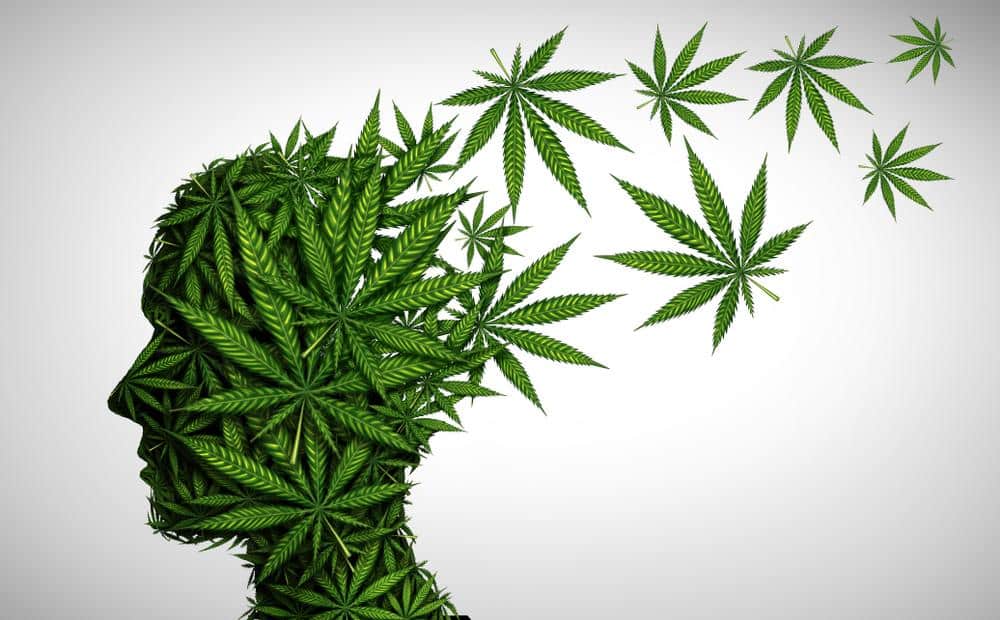Have you ever wondered why cannabis has such diverse health benefits? Cannabis is inextricably intertwined with the healthy functioning of the human body, which is why THC can alleviate everything from pain and inflammation to sleep and anxiety. But how do THC and other cannabinoids work within the human body, and how and why does cannabis produce these effects?
THC and other cannabinoids produce their effects and benefits through their interaction within the endocannabinoid system (ECS). The endocannabinoid system (ECS) is a vast network of cannabinoid receptors and endocannabinoids that spreads throughout the body and brain.
When the endocannabinoid system was discovered, the medical community realized that the human body actually needs cannabinoids to maintain health and balance. The endocannabinoid system is responsible for nearly all facets of physical and mental health, and it requires the presence of cannabinoids to thrive.
To understand the essential role that cannabinoids such as THC play in human health, it is essential to understand how they interact with the ECS and these interdependent systems. In this article, we provide an overview of the endocannabinoid system and the role that cannabinoids play in human health. In doing so, we hope to illuminate why cannabinoids such as THC have such a wide variety of health benefits.
The Endocannabinoid System and Human Health

The ECS regulates is responsible for physiological processes that take place in the central nervous system, muscles, nerves, skin, and internal organs. Below, we list just a few of the countless bodily functions directly impacted by the ECS:
- Mood – Lemon AK Auto
- Sleep – AK Auto
- Appetite – Gorilla Glue Auto
- Pain
- Inflammation
- Metabolism
- Cell growth
- Skin health
- Anxiety – Skunk Auto
- Joint pain
- Muscle aches and spasms
And much, much more. As you can see, the ECS isn’t just one system: it’s more of an umbrella term for the various, interdependent systems that are directly impacted by the health of the ECS, and the presence of cannabinoids in the human body.
Endocannabinoids
In the 1980’s, scientists discovered that the human body produces its own “endocannabinoids” to function properly. Endocannabinoids are naturally occurring cannabinoids endogenous to the human body. Endocannabinoids function as neurotransmitters, often referred to as the body’s neurochemical “messengers” that deliver information from one cellular system to the next.
When certain bodily systems controlled by the ECS aren’t functioning properly, cannabinoids send signals that something is off, and bind with cannabinoid receptors to restore balance and health to the dysfunctional system. As neurotransmitters, cannabinoids deliver messages and send signals across synapses from one neuron to another, and this neurotransmission allows different parts of the body and brain to communicate and cooperate with one another.
Cannabinoid Receptors
Shortly after the discovery of endocannabinoids, scientists found that vast range of cannabinoid receptors that spread throughout the human body and brain. These receptors respond to cannabinoids, and cannabinoids only; with this, researchers began to understand why the human body produced its own cannabinoids. As neurotransmitters, endocannabinoids exert their effects and by binding with the cannabinoid receptors located throughout the body and brain.
Cannabinoids and cannabinoid receptors interact through a lock-and-key mechanism of action. Just as your house key is specifically designed to fit the lock in your door, cannabinoids are specifically shaped to fit with and bind to cannabinoid receptors. By doing so, they unlock access to the cells that those cannabinoid receptors control, and they can intervene in that cellular system to impact the way it functions. Likewise, your house key can unlock your door, giving you the ability to go inside and access the room. Just as unlocking your door allows you to adjust the environment inside–i.e., by turning down your AC to establish a balanced temperature–cannabinoids bind with cannabinoid receptors to access a group of cells and change something about the way they function.
And as we’ll explain in the next section of this article, this is exactly how cannabinoids such as THC produce their effects in the human body. THC and other phytocannabinoids derive from plants, rather than from the human body. But they are cannabinoids nonetheless, and when we consume cannabis, the cannabinoids that enter our system mimic the function of endocannabinoids when they interact with the ECS.
Endocannabinoid Deficiency
Many individuals suffer from endocannabinoid deficiency. Endocannabinoid deficiency occurs when the body stops producing enough endocannabinoids to bind with the cannabinoid receptors in the body. As a result, the ECS becomes imbalanced, and is unable to perform its job of maintaining bodily homeostasis. When the ECS, the body’s master regulatory system, becomes imbalanced, the aforementioned physiological processes and bodily functions are thrown out of balance.
The causes of endocannabinoid deficiency are extremely common, and include stress, diet, and other common lifestyle factors. With endocannabinoid deficiency, the body does not contain enough endocannabinoids to account for all of the cannabinoid receptors and the systems they control, meaning that when these systems become dysfunctional, the body lacks the tools necessary to correct them–and, in turn, to restore our health.
As such, cannabis researchers suspect that endocannabinoid deficiency is responsible for the physiological dysfunction underlying many conditions and symptoms such as insomnia, anxiety, mood imbalances, inflammation, and more.
Phytocannabinoids
This is where phytocannabinoids come into play. Mimicking endocannabinoids, phytocannabinoids correct the imbalance responsible for the dysfunction of the bodily systems that have been thrown off by endocannabinoid deficiency. Cannabinoids perform the same function as endocannabinoids, and by ingesting them, we replenish cannabinoid levels in the ECS.
By consuming cannabis, we restore equilibrium to the body and mind by replenishing the ECS. When we use cannabis, cannabinoids such as THC bind to targeted receptors to restore proper functioning to the systems controlled by the ECS.
Conclusion
With the discovery of the endocannabinoid systems, scientists could confirm that cannabis plays an essential role in human health. The ECS is essential to understanding the medicinal value of cannabis, and by understanding the ECS, we can better understand why cannabis contributes to our overall health.






